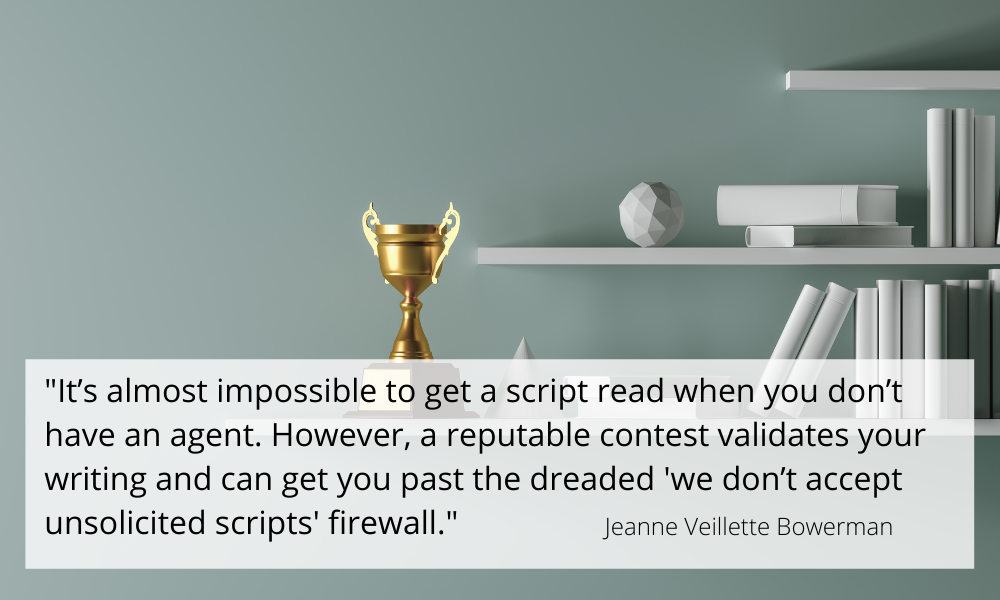Ask the Professor
Want the inside scoop on submission protocol, finding an agent and other scriptwriting mysteries? The professor is in.
We asked readers to submit questions for University of Southern California cinema and TV professor Richard Krevolin. One reader's questions—and Professor K's answers—follow.
Dear Professor K,
- Do you suggest approaching an agent via a query letter or is it better to submit a script?
- Do you advocate "getting it all on paper" followed by extensive revision, or do you feel a writer is better served by polishing material as he or she goes?
- What are the pros and cons of detailed outlining?
- Are detailed character sketches important as a preliminary to actually creating the script?
- Do you think it is best to hold a specific actor in mind for each character in the script?
—Donald McQuinn
Dear Donald,
Boy, Mr. McQuinn, you ask a lot of questions. Let me see what I can do with all your apt queries.
1. Unless you have a legitimate Hollywood agent, manager or entertainment lawyer, you really have no option in that most production companies will label your script—UNSOLICITED—and will refuse to accept it. So the industry, in essence, dictates that you must use the query letter route. One of my students, who happens to live in Arkansas, recently used the Hollywood Creative Directory Online Listing service, which provides e-mail addresses for production companies. She chose 400 of these addresses and queried all the companies in one afternoon via e-mail. Beforehand, we worked together for a few weeks, working and reworking her query until it kicked butt and we ensured that it was no longer than one computer screen. As a result, out of her 400 queries, she received nine positive responses asking her to submit her screenplay. Pretty low odds (a 2.25 percent return) but actually, relatively speaking, a pretty high response ratio.
2. Ah, now we are talking about process. I find that the most efficient method involves extensive outlining in which the writer spends weeks or months finding the story down to each and every scene and every beat within that scene. However, there are times when I find this grueling process feels like a confining straitjacket and it is in those time periods where I say to myself, "What the heck? Just do it, baby!" and I forget outlining and just write.
The thing is this—I know that when I'm free-writing and the creative juices are flowing, I'll find some good stuff, but also much or all of what I'm doing will have to eventually be tossed out. So, if you are blocked, just go for it and write, but do so knowing that this is an inefficient method designed to free you up and you will still have to go through a rigid outlining process that can't be avoided.
3. See the answer above.
4. Which came first, the character or the plot? This is a biggie and a question that constantly arises. Essentially, big Hollywood movies, even though they are star vehicles, tend to be plot-driven, while smaller, more artsy films tend to be character-driven. I have a theater background and tend towards character stuff, but even with that said, movies are about story first. You sell a film based upon the premise, the story concept, not an interesting character (unless you are doing a historical biopic like JFK).
So, if one has to choose, I do emphasize to my students to nail the story and then nail the character, but inevitably, this leads them to writing a good story populated with weak characters that merely seem to be there to serve the plot. Uh-oh! This is a real no-no. So, feel free to work back and forth, focusing on both the character and story; so that, in the end, the characters seem alive and only do that which seems believable in the context of the fully fleshed-out story.
5. Phew, last one for McQuinn. I think I can make it. Hold an actor in mind if it helps you. If you are writing a big-budget feature, definitely think of a big-budget star who would love to play the lead role. However, in your action description in your script, never write: JOEY, (38, a Tom Hanks-type). This will alienate every other actor in town. Instead, think of what Tom Hanks might say or do if it helps you keep the character consistent, but merely describe him as JOEY (38, amiable, good-looking in a non-descript way).
Richard Krevolin is a screenwriter, playwright, script consultant, lecturer and author of Screenwriting From the Soul.
This article appeared in the August 2000 issue of Scriptwriting Secrets.









